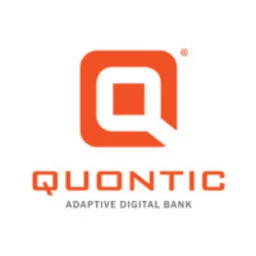Choosing the right bank for your money is only half the battle. Once you've settled on that, you have to decide which types of bank accounts you're going to use.
There are four main options you'll come across -- checking accounts, savings accounts, money market accounts, and certificates of deposit (CDs) -- and each of them are discussed in detail below.
Checking accounts
Checking accounts are the best accounts for everyday spending. This is for a few reasons:
- They give you easy access to your money. Most checking accounts offer several ways for you to withdraw your money, including the ability to write checks and a debit card with ATM access.
- They don't have deposit or withdrawal limits. Unlike some other accounts, you aren't usually restricted on how many times you can make a withdrawal from your checking account.
Some of the best checking accounts also enable you to earn interest on your funds. But these are rare -- and even those that do offer interest usually have a lower rate than what you'll find with the other types of bank accounts.
Checking accounts typically have FDIC insurance. This protects your money up to $250,000 per person, per bank, per ownership category, in the event of bank failure. All licensed U.S. banks have this on their deposit accounts. If you open a checking account through a credit union, you'll get National Credit Union Administration (NCUA) insurance. This is the same as FDIC insurance, except it's for credit unions.
Take a look at a few checking accounts available now:
Compare checking accounts
We recommend comparing checking accounts to make sure you're getting the best fit for you. Here's a list of our favorite accounts.
| Account | APY | Promotion | Next Steps |
|---|---|---|---|

Open Account for Discover® Cashback Debit
On Discover Bank's Secure Website.
Rating image, 5.00 out of 5 stars.
5.00/5
Our ratings are based on a 5 star scale.
5 stars equals Best.
4 stars equals Excellent.
3 stars equals Good.
2 stars equals Fair.
1 star equals Poor.
We want your money to work harder for you. Which is why our ratings are biased toward offers that deliver versatility while cutting out-of-pocket costs.
|
0%
Min. to earn: N/A
|
Earn 1% cash back on up to $3,000 in debit card purchases each month (see details when you click 'Open Account')
|
Open Account for Discover® Cashback Debit
On Discover Bank's Secure Website. |
|
Open Account for Quontic High Interest Checking
On Quontic's Secure Website.
Rating image, 4.50 out of 5 stars.
4.50/5
Our ratings are based on a 5 star scale.
5 stars equals Best.
4 stars equals Excellent.
3 stars equals Good.
2 stars equals Fair.
1 star equals Poor.
We want your money to work harder for you. Which is why our ratings are biased toward offers that deliver versatility while cutting out-of-pocket costs.
|
up to 1.10%
Min. to earn: $1
|
High APY when you complete 10 or more qualifying debit card purchases each month
|
Open Account for Quontic High Interest Checking
On Quontic's Secure Website. |
10 debit card point of sale transactions of $10 or more per statement cycle required to earn the maximum APY. If the qualifying activity requirement is not fulfilled, the interest rate paid on the entire balance will be 0.01% APY.
Savings accounts
Savings accounts are intended to hold money you don't plan to spend immediately. It's a great place for your emergency fund or money you're saving for a near-term goal, like a home down payment.
Money you keep in a savings account earns interest over time. How much you get depends on how much money you keep in the account, as well as its annual percentage yield (APY). A higher APY means more money for you.
Rates vary from one savings account to another and over time, but here's a look at what some of the best savings accounts have to offer right now:
Compare savings rates
Make sure you're getting the best account for you by comparing savings rates and promotions. Here are some of our favorite high-yield savings accounts to consider.
| Account | APY | Promotion | Next Steps |
|---|---|---|---|

Open Account for American Express® High Yield Savings
On American Express's Secure Website.
Rating image, 4.00 out of 5 stars.
4.00/5
Our ratings are based on a 5 star scale.
5 stars equals Best.
4 stars equals Excellent.
3 stars equals Good.
2 stars equals Fair.
1 star equals Poor.
We want your money to work harder for you. Which is why our ratings are biased toward offers that deliver versatility while cutting out-of-pocket costs.
|
3.70%
Rate info
3.70% annual percentage yield as of March 31, 2025. Terms apply.
Min. to earn: $0
|
N/A
|
Open Account for American Express® High Yield Savings
On American Express's Secure Website. |

Open Account for CIT Platinum Savings
On CIT's Secure Website.
Rating image, 4.50 out of 5 stars.
4.50/5
Our ratings are based on a 5 star scale.
5 stars equals Best.
4 stars equals Excellent.
3 stars equals Good.
2 stars equals Fair.
1 star equals Poor.
We want your money to work harder for you. Which is why our ratings are biased toward offers that deliver versatility while cutting out-of-pocket costs.
|
4.10% APY for balances of $5,000 or more
Rate info
4.10% APY for balances of $5,000 or more; otherwise, 0.25% APY
Min. to earn: $100 to open account, $5,000+ for max APY
|
Earn a bonus of at least $225 after a one-time deposit of $25,000+.
Transfer a one-time deposit of $25,000-$49,999.99 for a bonus of $225. Transfer a one-time deposit of $50,000+ for a bonus of $300. Account must be opened with code PS2025 while this promotion lasts, and funded within 30 days. Bonus will be fulfilled within 60 days from the funding date. There is no period of time where the customer will be required to maintain the funds. Account must be open when bonus is credited. One bonus per account and primary customer. Bonus will be credited into the Platinum Savings Account that fulfills the funding requirement. Funding can be deposited all at once or incrementally.
|
Open Account for CIT Platinum Savings
On CIT's Secure Website. |

Open Account for Capital One 360 Performance Savings
On Capital One's Secure Website.
Rating image, 4.50 out of 5 stars.
4.50/5
Our ratings are based on a 5 star scale.
5 stars equals Best.
4 stars equals Excellent.
3 stars equals Good.
2 stars equals Fair.
1 star equals Poor.
We want your money to work harder for you. Which is why our ratings are biased toward offers that deliver versatility while cutting out-of-pocket costs.
|
3.70%
Rate info
See Capital One website for most up-to-date rates. Advertised Annual Percentage Yield (APY) is variable and accurate as of Feb. 6, 2025. Rates are subject to change at any time before or after account opening.
Min. to earn: $0
|
N/A
|
Open Account for Capital One 360 Performance Savings
On Capital One's Secure Website. |
The downside to savings accounts is that you're often limited to a certain number of monthly withdrawals, and exceeding that can carry penalties.
A federal law known as Regulation D used to restrict all savings accounts to six monthly withdrawals. The government waived this at the start of the COVID-19 pandemic and has yet to reinstate it, but some banks still persist in charging fees for more than six monthly savings account withdrawals.
Savings accounts also rarely offer you any means of withdrawing money directly. Most don't have debit cards or check-writing capabilities, so you must transfer the money to a checking account before you can actually withdraw the funds.
Money market accounts
Money market accounts share some of the features of checking and savings accounts, which makes them a good place for your emergency fund. Like savings accounts, they earn interest, and sometimes money market account APYs can be higher than savings account APYs.
Many money market accounts also include checks and/or a debit card so you can directly withdraw funds from the account. You can also transfer funds to a checking account if you prefer.
Some money market accounts are subject to the same limits on monthly withdrawals as savings accounts, so consider this if you plan to move your money around a lot. Additionally, money market accounts often have higher minimum deposit requirements than savings accounts. This can make them less accessible to those with small balances.
Money market accounts are also protected by FDIC insurance, but just like checking and savings accounts, you don't want to keep more than $250,000 in one or you're putting yourself at risk of loss.
Compare a few money market accounts to get a better idea of current offerings:
Certificates of deposit (CDs)
Certificates of deposit (CDs) are a special type of savings account that enables you to earn a higher APY on your savings -- but only if you agree not to touch your money for a while. You also have to be willing to deposit at least a few hundred dollars, as CDs almost always have minimum balance requirements.
Every CD has a term, which can range from as little as few days to as long as 10 years or more. Most fall within the six-month to five-year range. This is how long you agree to leave your money untouched in the CD. If you fail to do so, you'll get slapped with early withdrawal penalties.
The best CD rates are even higher than savings account interest rates. Normally, your CD's APY is locked in for the full term, though this varies depending on the type of CD. That can pose a risk because, if you lock in a low rate and interest rates later rise, you're stuck with what you've got.
Some people get around this with a strategy known as CD laddering. This is where you open several CDs of different lengths -- for example, a 1-year CD, a 2-year CD, a 3-year CD, a 4-year CD, and a 5-year CD. You deposit equal amounts in each one, and then as each CD term ends, you reinvest the funds in a new 5-year CD. This enables you to take advantage of the higher interest rates on long-term CDs while still giving you regular access to some of your cash.
Because you're not supposed to take any money out of your CD before the term is up, you won't have access to any checks or debit cards from this account. But you get the same FDIC insurance as the other bank accounts described above.
Compare CD rates
| Bank & CD Offer | APY | Term | Min. Deposit | Next Steps |
|---|---|---|---|---|
|
Discover® Bank CD
Member FDIC.
Open Account for Discover® Bank CD
On Discover Bank's Secure Website. |
APY:
4.00%
|
Term:
1 Year
|
Min. Deposit:
$0
|
Open Account for Discover® Bank CD
On Discover Bank's Secure Website. |
|
APY:
4.50%
|
Term:
10 Months
|
Min. Deposit:
$2,500
|
Open Account for
On Secure Website. |
|
|
APY:
3.75%
|
Term:
6 Months
|
Min. Deposit:
$500
|
Open Account for
On Secure Website. |
Which bank account is right for me?
Each bank account described above has its pros and cons. If you're still not sure which types of bank accounts are right for you, ask yourself the following questions:
- How often do I plan to withdraw money?
- Do I want the option to directly withdraw funds from the account?
- How much do I plan to keep in the account?
Your answers should guide you toward the type of account that's best for you. And feel free to open more than one if that suits you. You could open a checking account for everyday spending, a savings account for your emergency fund, and a CD for some of your other savings you don't plan to use for a while. Figure out the combination that works best for you and know you can always add, change, or remove accounts down the road.
FAQs
-
That depends on your situation. Checking accounts are best for everyday spending. Savings accounts, money market accounts, and certificates of deposit (CDs) are better places for your savings.
-
Checking accounts are meant to hold money for everyday spending. There's no restrictions on withdrawals and most include checks and a debit card. But you don't usually earn much (if any) interest on your funds. Savings accounts offer better interest rates, but it's often more difficult to withdraw funds without first transferring them to a checking account. Plus, savings accounts can carry penalties if you make too many monthly withdrawals.
-
There are four major types of bank accounts: checking accounts, savings accounts, money market accounts, and certificates of deposit (CDs).
We're firm believers in the Golden Rule, which is why editorial opinions are ours alone and have not been previously reviewed, approved, or endorsed by included advertisers. Motley Fool Money does not cover all offers on the market. Motley Fool Money is 100% owned and operated by The Motley Fool. Our knowledgeable team of personal finance editors and analysts are employed by The Motley Fool and held to the same set of publishing standards and editorial integrity while maintaining professional separation from the analysts and editors on other Motley Fool brands. Terms may apply to offers listed on this page. APYs are subject to change at any time without notice.


